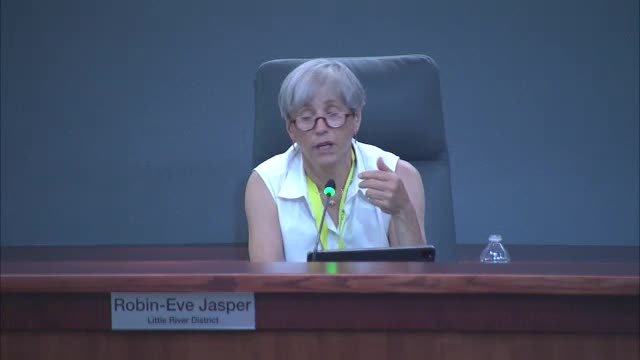Retail transformation sparks debate on community needs
June 13, 2024 | Loudoun, Virginia

This article was created by AI summarizing key points discussed. AI makes mistakes, so for full details and context, please refer to the video of the full meeting. Please report any errors so we can fix them. Report an error »

In a recent government meeting, officials discussed the evolving landscape of retail and residential development, emphasizing the need for adaptable spaces that can respond to changing consumer demands. The conversation highlighted the importance of integrating essential services, such as grocery stores and pharmacies, into new developments to meet community needs.
Commissioner Myers pointed out the cyclical nature of retail, noting that if adequate space for retail is not incorporated during initial construction, it becomes challenging to adapt later. This sentiment was echoed by other commissioners who stressed the necessity of creating walkable environments that support local businesses and services.
Commissioner Barnes specifically addressed the types of retail that are most needed in the area, advocating for essential services rather than traditional retail outlets. He underscored the importance of having grocery stores, pharmacies, and personal care services within close proximity to residents, arguing that these necessities would attract foot traffic and enhance community convenience.
The meeting also touched on the intersection controls in the area, with officials acknowledging the limitations posed by the current infrastructure. The Department of Transportation and Capital Infrastructure (DTCI) indicated that further analysis would be required to determine the most appropriate solutions for traffic management at key intersections.
As the discussion progressed, the applicant for the Arcola Town Center Residential project presented updated plans that reflected feedback from previous meetings. Key changes included the removal of certain housing units and the commitment to provide a mix of smaller townhomes and one-bedroom units, addressing concerns about housing diversity in the community.
Overall, the meeting underscored a collaborative effort among officials to ensure that future developments are not only aesthetically pleasing but also functional and responsive to the needs of the community.
Commissioner Myers pointed out the cyclical nature of retail, noting that if adequate space for retail is not incorporated during initial construction, it becomes challenging to adapt later. This sentiment was echoed by other commissioners who stressed the necessity of creating walkable environments that support local businesses and services.
Commissioner Barnes specifically addressed the types of retail that are most needed in the area, advocating for essential services rather than traditional retail outlets. He underscored the importance of having grocery stores, pharmacies, and personal care services within close proximity to residents, arguing that these necessities would attract foot traffic and enhance community convenience.
The meeting also touched on the intersection controls in the area, with officials acknowledging the limitations posed by the current infrastructure. The Department of Transportation and Capital Infrastructure (DTCI) indicated that further analysis would be required to determine the most appropriate solutions for traffic management at key intersections.
As the discussion progressed, the applicant for the Arcola Town Center Residential project presented updated plans that reflected feedback from previous meetings. Key changes included the removal of certain housing units and the commitment to provide a mix of smaller townhomes and one-bedroom units, addressing concerns about housing diversity in the community.
Overall, the meeting underscored a collaborative effort among officials to ensure that future developments are not only aesthetically pleasing but also functional and responsive to the needs of the community.
View full meeting
This article is based on a recent meeting—watch the full video and explore the complete transcript for deeper insights into the discussion.
View full meeting
